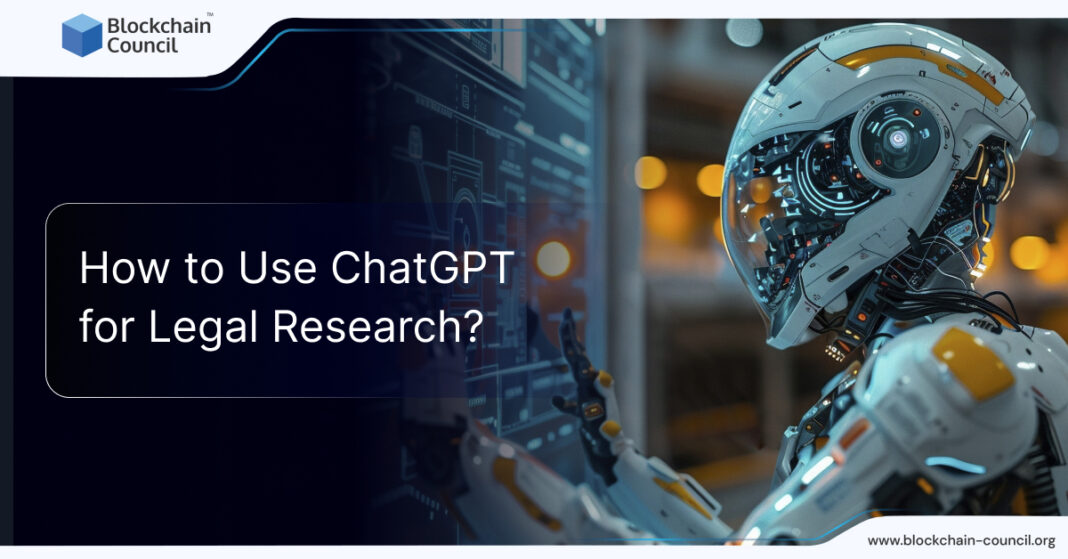Introduction
In recent years, the legal profession has witnessed a significant transformation with the advent of artificial intelligence (AI) and natural language processing (NLP) technologies. AI-powered legal assistants, such as ChatGPT, have become valuable tools for legal research, document analysis, and case management. This article delves into the capabilities of ChatGPT as an AI-driven legal research assistant, exploring its technical aspects and the impact it has on the legal field. Additionally, it highlights the importance of certification in the evolving landscape of AI, offering insights into ChatGPT certification and its significance for professionals.
The Evolution of Legal Research
Legal research has traditionally been a labor-intensive and time-consuming process. Legal professionals spent countless hours poring over case law, statutes, regulations, and legal literature to find relevant information for their cases. This process required an extensive understanding of legal language, access to comprehensive legal databases, and the ability to draw connections between various legal sources. With the introduction of legal research software and databases, the process became more streamlined, but it still required human input to frame the research query and interpret the results. However, the emergence of AI-powered legal assistants, like ChatGPT, has significantly disrupted this traditional paradigm.
ChatGPT: An Overview
ChatGPT is a state-of-the-art AI language model developed by OpenAI, based on the GPT-3.5 architecture. It is trained on vast amounts of text data, encompassing a wide range of topics, including legal documents, court cases, and legislative texts. ChatGPT’s ability to understand and generate human-like text has made it a valuable tool for legal professionals seeking efficient and accurate legal research assistance. Professionals looking to harness the full potential of ChatGPT can consider ChatGPT certification as a means to enhance their expertise in using this AI-powered tool effectively.
Benefits of ChatGPT in Legal Research
Efficiency:
ChatGPT significantly reduces the time and effort required for legal research. Its rapid retrieval of relevant information streamlines the research process, enabling legal professionals to focus on higher-value tasks. Certified ChatGPT experts can showcase their proficiency in utilizing ChatGPT to enhance research efficiency.
Accuracy:
ChatGPT’s extensive legal knowledge base ensures that the information it provides is accurate and up-to-date. It minimizes the risk of overlooking crucial legal precedents or misinterpreting statutes, a critical aspect highlighted in ChatGPT certification.
24/7 Availability:
ChatGPT is available round the clock, eliminating the constraints of office hours. Legal professionals can access it at any time to find answers to their legal queries, an advantage often emphasized in ChatGPT training programs.
Cost-Effective:
Using ChatGPT for legal research can lead to cost savings for legal firms. It reduces the need for extensive human research hours and subscription costs for legal databases, making it a valuable skill for certified ChatGPT experts.
Use Cases in Legal Research
Case Law Analysis:
ChatGPT can assist in analyzing and summarizing complex case law. It can identify relevant precedents, highlight key arguments, and extract case summaries. Professionals specializing in case law analysis can benefit from ChatGPT training and certification to demonstrate their expertise.
Legal Document Review:
Legal professionals can employ ChatGPT to review and analyze legal documents such as contracts, leases, and agreements. It can flag potential issues and provide suggestions for improvement, a skill honed through ChatGPT training.
Legal Research Queries:
ChatGPT is proficient at answering legal research queries. Legal professionals can ask questions about specific legal topics, statutes, or recent case developments, and ChatGPT can provide comprehensive responses. ChatGPT certification can validate a professional’s ability to make the most of this feature.
Due Diligence:
In mergers and acquisitions, ChatGPT can streamline due diligence processes by quickly extracting and summarizing critical information from voluminous legal documents. Certified ChatGPT experts can add value to due diligence procedures in the legal industry.
Challenges and Limitations
While ChatGPT offers substantial benefits to the legal field, it is essential to acknowledge its limitations:
Lack of Contextual Understanding:
ChatGPT may occasionally provide responses that lack context or nuance, which can be a concern in complex legal scenarios. ChatGPT training can help professionals navigate these challenges effectively.
Ethical and Bias Concerns:
The AI model can inadvertently perpetuate biases present in the training data, which is a critical concern in the legal field, where fairness and justice are paramount. Certified ChatGPT experts can be trained to mitigate these biases and promote ethical AI use.
Data Privacy:
The use of AI models for legal research may raise concerns about data privacy and confidentiality. Legal professionals must be cautious when handling sensitive client information, and ChatGPT certification can include best practices for data privacy.
Limited Interpretation:
ChatGPT can provide information but may not always offer interpretation, leaving legal professionals to make the final judgment on legal matters. Certified ChatGPT experts are equipped to bridge this gap and provide valuable insights.
Get Certified Now: Certified Generative AI Expert™
Blockchain Council Certification: Empowering ChatGPT Experts
In the evolving landscape of AI and ChatGPT, certification is paramount to showcase expertise and proficiency. The Blockchain Council offers a comprehensive ChatGPT certification program designed to equip professionals with the skills and knowledge needed to harness the full potential of ChatGPT in legal research. As a ChatGPT expert through the Blockchain platforms, you’ll be prepared to address the unique challenges and opportunities that AI presents in the legal field.
Conclusion
The integration of AI-powered legal assistants like ChatGPT into the legal profession has the potential to revolutionize legal research and streamline processes. While it has already shown its value in terms of efficiency and accuracy, it is crucial for legal professionals to navigate the ethical and privacy considerations that come with AI adoption. As the technology continues to advance, ChatGPT and similar AI models are poised to become indispensable tools for legal research, improving the overall practice of law. The legal profession is at the cusp of a transformative era, with AI as a powerful ally in the pursuit of justice and legal excellence. Blockchain Council certification ensures that legal professionals stay at the forefront of this transformative journey.

